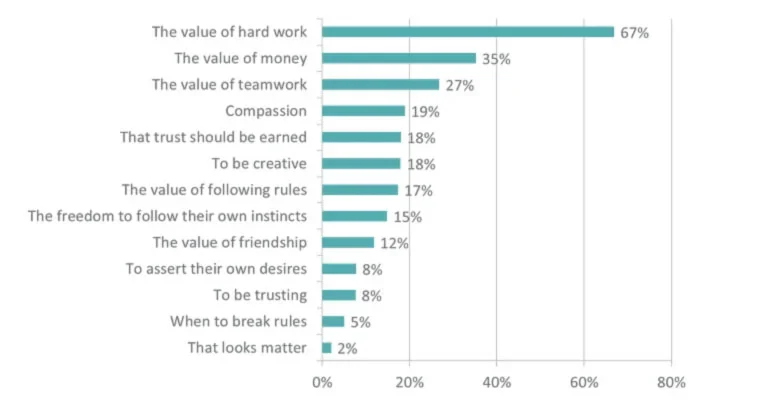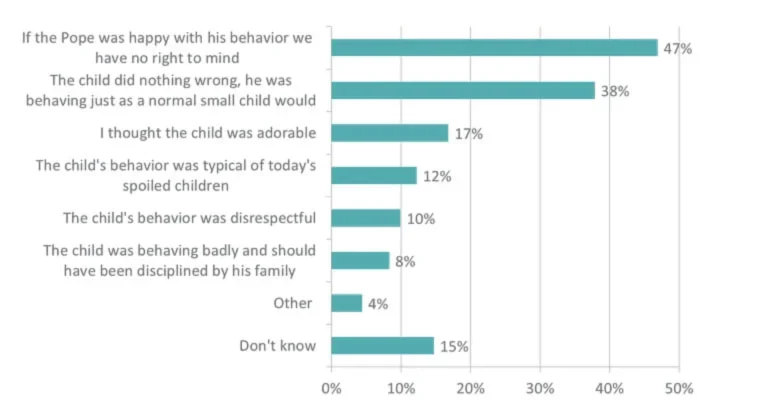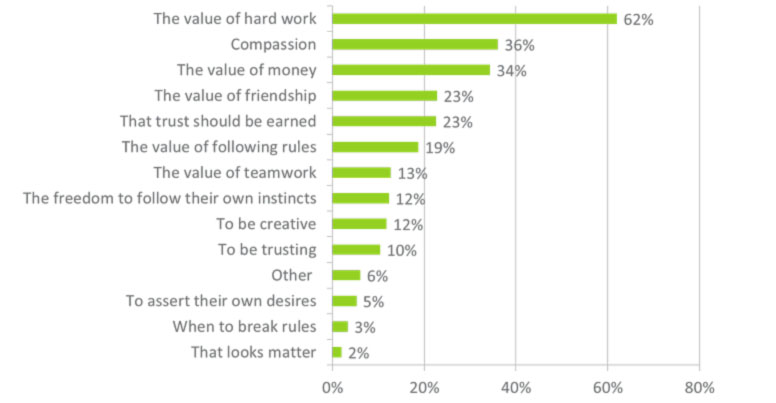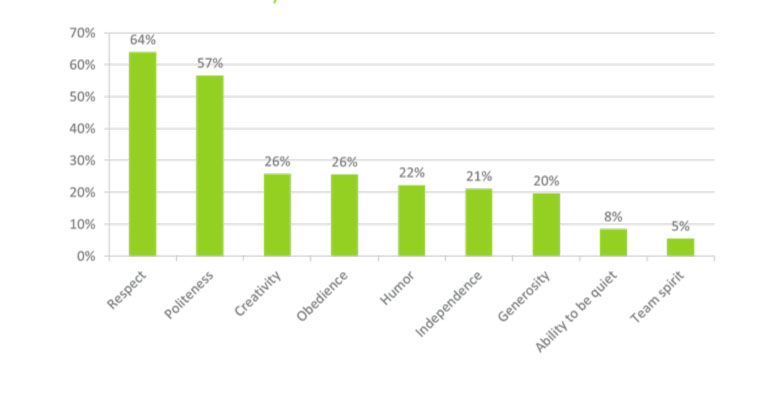How should kids behave?
After a child stole the limelight from Pope Francis at an address in the Vatican a few week ago, we asked the nation what they thought were the most essential lessons children should learn in life, behaviors they should show their elders and views on the incident itself.
According to our nationally representative survey of America, the majority (62%) of adults feel that children should learn the value of hard work in order to grow up to become a positive member of society.
Older people are more likely to feel this, with 70% of those aged 55 or over compared with 52% of those aged 18-34.
Other responses that are higher from older people tend to be those around respect for elders and following rules, such as: trust should be earned; the value of money, compassion, the value of following rules. Younger respondent are more inclined to encourage children to be more creative and free, suggesting they should know: when to break rules, to assert their own desires, to be trusting or indeed to feel that children should not learn any lessons to become a positive member of society.
What are the most important lesson(s) you think a child should learn in order to make him/her a postiive member of society when they grow up
The value of hard work continues to be the most important lesson US adults believe a child should learn in order to be successful when they grow up (67%). The value of money remains highly rated (35%) and teamwork climbs up the ranks, chosen by over one in four adults (27%).
What are the most important lesson(s) you think a child should learn in order to make him/her successful when they grow up

Looking at behavior more generally, two in three adults most value respect when they meet or interact with children. This, and politeness (chosen by 57% of adults) are the most chosen options by a way, with around one in four (26%) of adults valuing creativity and obedience. Just one in five (21%) adults value independence.
Again, there are interesting differences here by the age of adult, with older adults more likely to value obedience, politeness and respect, and younger adults placing more value on humor, creativity and generosity.
Which of the following behaviors do you most value in the children you meet or interact with?
Returning to the boy who wandered onto the stage with Pope Francis at a recent Vatican event, the US population were broadly positive about the boy’s behavior. Around half (47%) felt if the Pope was happy with his behavior, they have no right to mind and a further 38% felt the child had done no wrong and was just behaving like a small child.
Just one in ten (10%) described the boy’s behavior as disrespectful and one in twelve (8%) felt the child was behaving badly and should have been disciplined by his family.
The Pope’s reaction? Completely unfazed. The Pope continued as he was and even reached to pat the boy’s head at one point.
Which of the following behaviors do you most value in th chilren you meet or interact with?

For further information about poll results, and for details about methodology and omnibus services, please email omnibus.us@yougov.com.
Find the full results here.











